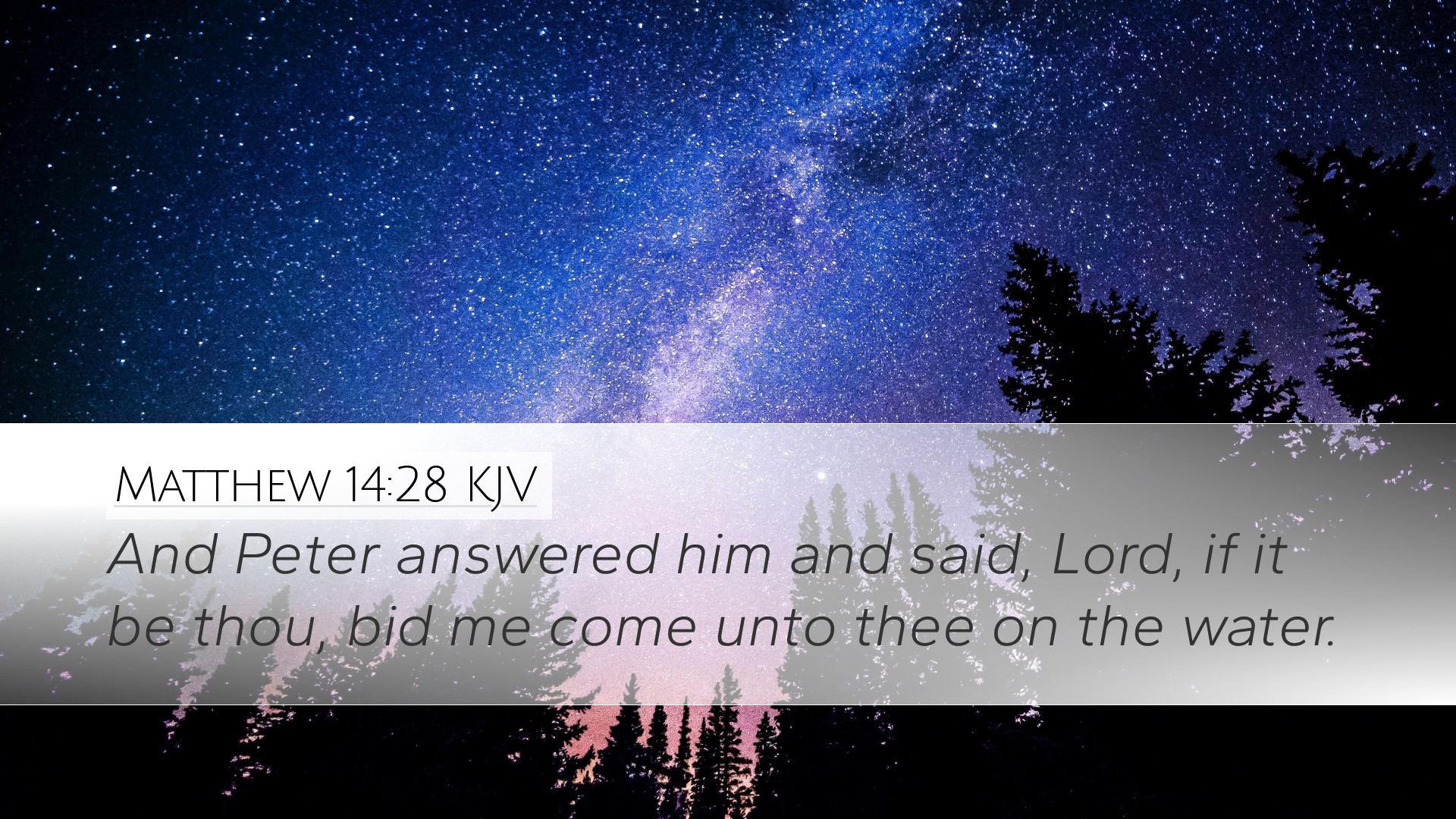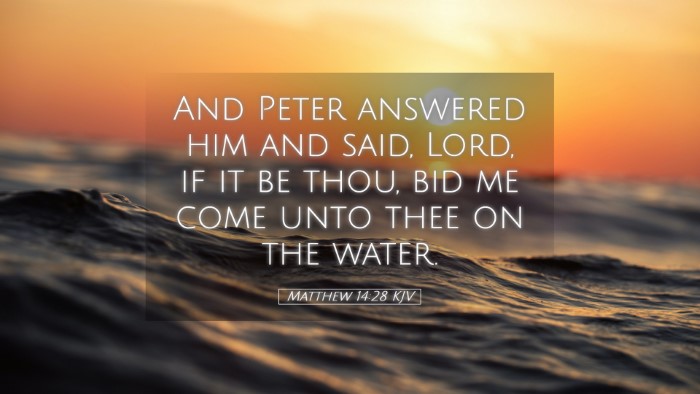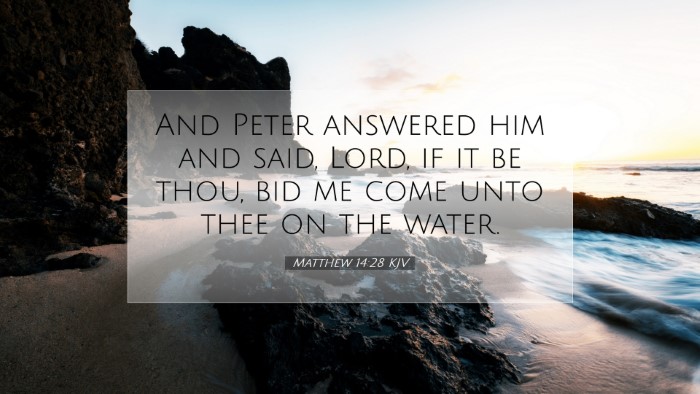Commentary on Matthew 14:28
Verse: “And Peter answered him and said, Lord, if it be thou, bid me come unto thee on the water.”
Introduction
This verse captures a pivotal moment in the Gospel narrative, demonstrating Peter's audacious faith and desire to follow Christ, even in the midst of extraordinary circumstances. The passage occurs in a context where the disciples are fearful due to a storm, highlighting themes of faith, doubt, and divine authority.
Contextual Understanding
Prior to this verse, we learn that Jesus had just performed the miracle of feeding five thousand men, indicating His authority and divine nature. Following this, He compels His disciples to cross the Sea of Galilee while He retreats to pray. This separation sets the stage for a test of the disciples' faith when a violent storm arises.
Exegesis of the Verse
- “And Peter answered him”:
Matthew Henry notes that Peter, though often impetuous, shows an admirable spirit in this verse. His answer is a reflection of the longing that many believers have: to be close to Jesus, even if it means confronting challenges.
- “Lord”:
Addressing Jesus as “Lord” demonstrates Peter’s acknowledgment of Jesus’ authority. Albert Barnes emphasizes the recognition implied in this address, suggesting that Peter understood Jesus to be more than a rabbi; He is the Lord of creation.
- “If it be thou”:
This clause reflects Peter’s cautious faith. His request comes with a conditional, indicating he seeks reassurance. Adam Clarke points out that faith can sometimes coexist with uncertainty, yet it does not diminish the authenticity of one’s faith or experiences with Christ.
- “Bid me come unto thee”:
In requesting to walk on the water, Peter desires a direct command from Jesus. This reflects a deeper theological truth, as faith is often activated through God's word. Henry suggests that true faith always seeks the word and command of Christ as the foundation for action.
- “On the water”:
Peter’s willingness to step onto the water symbolizes the extraordinary nature of faith. It requires one to act in ways that defy natural limitations. Barnes observes that the waters serve as both a literal and metaphorical barrier to faith, representing the testing of one’s trust in Christ amidst the storms of life.
Theological Implications
This verse not only illustrates Peter's character but also serves as a rich source for theological reflection:
- Faith in Adversity:
Every believer will face storms in life. Peter’s request symbolizes the dynamic intersection of faith and fear. It reminds us that even in tumultuous times, we can reach out to Christ with our uncertainties.
- Invitation to Trust:
Peter’s boldness in asking Jesus for permission to walk reflects the trust we are invited to have in Christ. God desires His children to act in faith, and sometimes this means stepping into the unknown.
- The Nature of Discipleship:
Discipleship often entails risk and the willingness to venture beyond our comfort zones. This passage challenges students and scholars alike to consider the cost of following Christ and the faith required to obey His call.
Application for Life and Ministry
The lessons drawn from Matthew 14:28 are profound for pastors and theologians alike:
- Encouragement in Community:
In ministry, it is essential to cultivate an environment where questions are encouraged. Like Peter, congregation members might grapple with doubt, yet also yearn for deeper communion with Christ.
- Empowering Faith Actions:
Pastors should inspire individuals to step out in faith. Preaching on this passage could empower congregants to pursue their spiritual gifts and callings, reminding them of the importance of Christ’s command.
- The Role of Prayer:
Asking “Lord, if it be thou” can also be a model for prayer in seeking God’s will. In discerning life decisions or ministry directions, believers might emulate Peter’s approach by seeking direct guidance from Jesus.
Conclusion
Matthew 14:28 presents a moment of profound faith exemplified by Peter, inviting believers to engage with their fears while reaching toward Jesus. This verse serves as a reminder that faith often calls us to venture into the unknown, illuminated by the trust we place in Christ’s commands. It challenges us to respond to the divine invitation, prompting both personal reflection and communal encouragement within the body of Christ.


